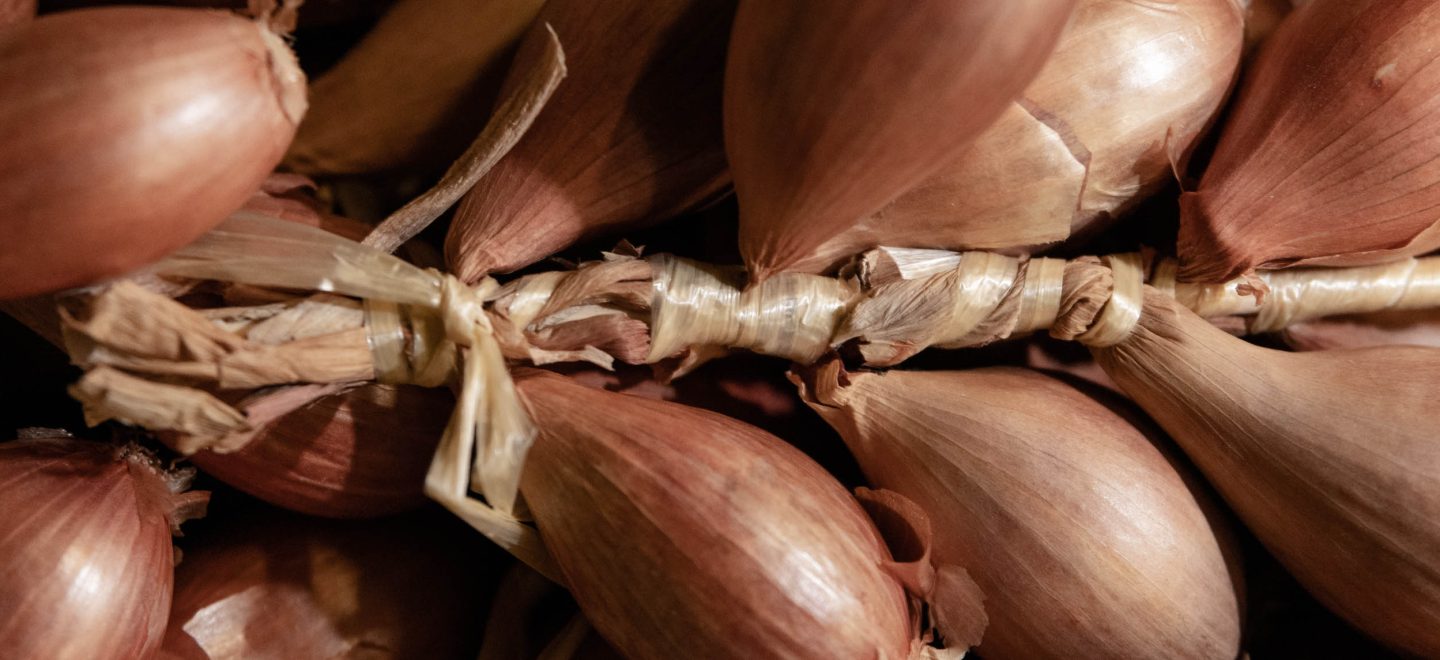Our customers are definitely the people best suited to introduce our range of shallots, onions and other vegetables. We asked them to tell us about their buying motivation, as well as that of their customers. We begin this series of interviews by talking with Gianni Bollettini, director of Milanese fruit and vegetable wholesaler Ortofrutticola Adriatica. Today, we’ll shine the spotlight on plaited traditional shallots.
Could you introduce yourself and tell us about your company and its business?
The company was founded by my father, Emilio Bollettini, in 1965. I work there with my son, Giorgio Bollettini. Ortofrutticola Adriatica has 12 employees, as well as staff in the Milan market.
Our company has a long history in the Milanese market, with a traditional focus on dried fruit. Over time, we’ve added many other long-life products aimed mainly at a niche retail market seeking to set itself apart from the large supermarkets. Our products are artisanal and non-industrial, and our main objective is always top quality. This is why we’ve tried over the years to establish a range of the best regional products from Italy and neighbouring countries.
Why did you decide to sell traditional shallots from Brittany?
We were already offering various French products such as Grenoble and Périgord walnuts, Parmentine potatoes and Cévennes onions. To complete our allium range, we added plaited traditional shallots from Brittany.
When did you begin offering plaited shallots to your customers?
We’ve been selling them since 2009, when we met Stéphanie, Pouliquen’s export sales representative, at the Berlin trade show. Since then, we’ve worked exclusively with Pouliquen.
Why did you decide to carry plaited rather than loose traditional shallots?
Plaited traditional shallots have a great look. These long shallots plaited by hand give us an opportunity to stand out. It’s an eye-catching product. The fragrance of traditional shallots is also very attractive and differs from onions. They can be prepared in many different ways.
Which of your customers are interested in plaited traditional shallots, and why?
They’re mainly shops that sell to end consumers. The plait works well in displays and adds to the attractiveness of their aisles.
On your website, you highlight the quality of the products you select. How does Pouliquen’s range, and specifically plaited traditional shallots, meet this quality standard?
Our primary indicator is customer satisfaction. In 14 years, we’ve had practically no negative feedback about these products. Traditional shallot plaits have found their market and their place in the Adriatica range. Their consumption has become quite linear: it’s steady year-round.
On your website, you also evoke ethical production and respect for the land. What convinced you to place your first order with Pouliquen and to continue this partnership?
What caught my attention was that this product was farmed and plaited by hand in Brittany. We look for artisanal products, and plaited shallots fit that description. As for ethical production, this is one of Adriatica’s principle values, and nowadays it’s echoed by our customers. That’s why it’s an advantage to be able to offer this allium and explain how it’s produced. In addition, the unusual 250-gram plait is beautiful and practical. It’s perfect for housekeepers.
In a word, could you define your relationship with Pouliquen today?
Our relationship with Pouliquen is excellent. Delivery is always punctual; there are no complaints. We ordered a sample palette 14 years ago, and we’ve been a customer ever since. It was a very convincing sample!
